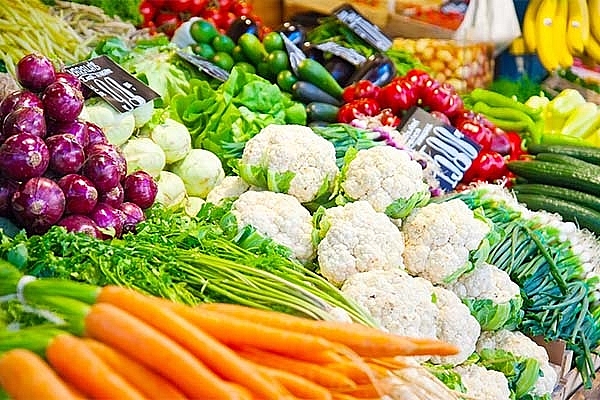By The North Journals Staff
In a small village in Nasarawa State, 54-year-old Mary Ayuba prepares her breakfast over a wood-fired stove. On her plate: steamed acha (fonio), sautéed moringa leaves, and a light broth made with locust beans and smoked fish. There is no sugar, no preservatives, no processed flour. For her, it’s not a trend, it’s tradition.
“I used to think bread and tea made me feel full, but they only made me tired,” Mary tells The North Journals. “Since I started eating the way my mother used to feed us, my body feels lighter. My blood pressure has dropped.”
Mary is one of many Nigerians returning to indigenous foods, some out of necessity, others by choice as the country faces a silent epidemic of non-communicable diseases linked to modern, highly processed diets.
A Health Crisis Hidden in Plain Sight
According to the Nigerian Heart Foundation, over 30% of adult Nigerians suffer from high blood pressure, a major risk factor for stroke, kidney failure, and heart disease. Meanwhile, diabetes, once rare, is on the rise, especially in urban centers.
“The biggest drivers are poor diets and sedentary lifestyles,” says Dr. Semira, a Yola based nutritionist. “We’ve moved away from nutrient-dense local foods to imported items that are cheap, filling, but harmful in the long run.”
Foods like instant noodles, sugary drinks, white bread, and canned meat have become staples for many low- and middle-income families. The convenience comes at a cost: these products are calorie-dense but nutrient-poor, contributing to weight gain and metabolic diseases.
The Indigenous Advantage
Ironically, while many urban dwellers adopt so-called “foreign” healthy lifestyles, keto, vegan, and gluten-free diets rural Nigerians are naturally practicing what experts now call “ancestral nutrition.”
Local grains like millet, sorghum, and acha are rich in fiber and slow-digesting carbohydrates. Vegetables such as ugu (pumpkin leaves), okra, bitter leaf, and moringa are loaded with antioxidants and vitamins. Fermented foods like ogi (pap) and kunu help improve gut health.
“These foods are not only healthy, but they’re adapted to our environment,” explains Dr. Fatima Wada, a public health lecturer at the University of Ilorin. “They require fewer chemicals to grow and are part of our cultural identity.”
A growing number of Nigerians, especially the youth, are embracing these foods not just for health, but for climate and cultural reasons.
Urban Revival: A Return to the Soil
In Abuja and Lagos, urban gardening initiatives are gaining traction. Community groups, health influencers, and eco-entrepreneurs are teaching residents to grow their own vegetables in buckets, bags, or backyard plots.
Chinonso Umeh, a 31-year-old health blogger based in Lekki, shares recipes using unrefined palm oil, guinea corn, and garden eggs to over 50,000 followers. “I call it conscious eating,” she says. “Our grandparents weren’t eating imported sausages and yogurt, yet they lived long and strong. I want us to reclaim that wisdom.”
For some, this movement is more than personal, it’s political. Farmers’ cooperatives and local food advocates are calling for policies that promote Nigeria-grown produce over imports. They argue that strengthening local food systems will not only improve public health but also create jobs and build food security.
Challenges in the Way
Despite growing awareness, barriers remain. The dominance of processed food advertising, lack of nutrition education in schools, and weak support for local agriculture continue to tilt the scales against healthy choices.
Moreover, convenience and affordability make processed food hard to resist for many low-income families in cities. A loaf of bread is often cheaper than a bowl of fresh vegetables.
“We need government subsidies for healthy staples, not just rice and wheat,” urges Dr. Semria. “Why not support small-scale farmers growing vegetables, yams, and legumes?”
In 2023, the Nigerian government launched the National Food Systems Transformation Pathway, pledging to reduce malnutrition and promote sustainable agriculture. But implementation has been slow.
The Way Forward: Health on Our Own Terms
As Nigeria grapples with public health challenges, the answer may not lie in imported solutions, but in the wisdom already rooted in its soil. Nutritionists, farmers, and everyday citizens are proving that the path to a healthier life can begin with a handful of millet, a pot of soup, and the will to reconnect with nature.
For Mary Ayuba, it’s not a trend. It’s survival, healing, and hope.
“Food is medicine,” she says, with a smile. “We just forgot for a while.”
